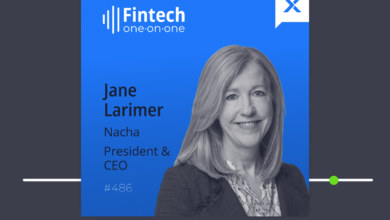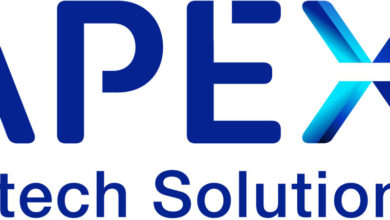Nico Simko, CEO At Fintech Clair, Shares Perspective On Earned Wage Access (EWA) Adoption

As Wisconsin becomes the latest state to regulate Earned Wage Access (EWA) services, we connected with Nico Simko, founder and CEO of on-demand pay app Clair, to discuss the ever-changing EWA landscape, the impact of local state government’s efforts to protect consumers, and more.
Nico Simko from Clair is often in DC meeting with legislators and has a lot of expertise and experience related to EWA / fintech regulation.
Our discussion with Nico is shared below.
Crowdfund Insider: How does Clair differ from other earned wage access providers in the space?
Nico Simko: Clair’s differentiator from other earned wage access (EWA) providers is its business model. When my co-founder Alex and I were conceptualizing how Clair would serve employers and their workforces, we wanted to make sure to go about it differently from other on-demand pay providers who charge fees to employees looking to access their earned wages.
To us, that’s money they’ve already earned and employees shouldn’t have to pay to access it. Fee-based models create a cycle where EWA providers encourage more borrowing because they’ll earn more money, and this ultimately puts employees in tough financial situations. Clair does not earn revenue when employees borrow, but instead makes money from merchants through interchange when customers spend on their Clair Debit Mastercards.
Clair has made incorporating compliance into its business model a priority. Most customers borrowing from EWA providers are often doing so for an emergency expense that they cannot afford. If they are unable to afford the initial expense, it’s easy for them to fall into toxic debt cycles when there are fees stacked against it.
Since Clair does not charge fees, we are incentivized to help customers save and spend responsibly. We’re proud to say Clair has provided over $10 million in free advances with the help of our national bank partner Pathward. Our customers have also shown a tendency to borrow less over time, signaling that their financial situations have stabilized with an on-demand pay benefit like ours.
Crowdfund Insider: What is Clair’s stance towards earned wage access and how do the ongoing legislative updates affect the company?
Nico Simko: There’s an ongoing debate around legislation because some legislators believe EWA is lending and should be regulated like it, while others say it’s not lending and instead falls into a regulatory gray area. At Clair, we believe EWA should be categorized as lending, so existing regulations around that should apply here, too.
To eliminate the ambiguity around existing laws, we fully support protecting consumers by creating new regulations specifically for fintech companies. With legislators making progress in states like California, Connecticut and Wisconsin, Clair plays an active role in conversations about new and proposed regulations. I’m constantly meeting with people involved in these legislative discussions by making trips to the country’s capital or across coasts.
Crowdfund Insider: Can you explain the benefits of having prioritized compliance for Clair from the start of its initial launch? What challenges do you foresee other earned wage access providers will experience as they navigate the industry?
Nico Simko: When Alex and I first started Clair, we wanted to ensure we were set up for long-term success, even if it meant initially scaling the business slowly. We’ve approached regulatory challenges head-on and prioritizing compliance has been embedded into our business model from the beginning. Clair is a fully compliant provider and our team spent years of time and effort doing our due diligence and getting the proper licenses to give the company that title. It wasn’t an easy feat, but as we’re seeing the regulatory turmoil in the EWA industry, we know we made the right choice.
As the only fintech company providing completely free wage advances in partnership with a national bank, we’re able to offer FDIC-insured accounts that put our customers’ and partners’ minds at ease. Clair’s services and accounts will never experience unwanted interruptions due to regulation updates made by individual states.
However, customers of non-compliant EWA providers may face disruptive service changes. If state regulators decide to alter current laws and deem EWA illegal, a non-compliant provider must completely overhaul how it works with all its customers and reevaluate its entire business model. Employers partnering with the fintech provider will experience headaches as their employees navigate payroll complications and additional transaction fees. We’re already seeing this take shape in states like Connecticut.
Crowdfund Insider: What should employers know about earned wage regulation?
Nico Simko: Clair’s mission is to empower employers with the technology and financial benefits their employees need to show up feeling stable and focused. To make sure employers are assisting with workplace productivity, we also recommend for them to onboard partners with positive user experiences, ensuring one less thing for their employees to worry about when managing bills.
One piece of data that we love to refer back to and highlight among our partnering employers is that employees who use Clair pick up 15% more shifts and stay with employers for 25% longer than workers who don’t use it. This really speaks to the growing value of financial wellness benefits during the ongoing, front-line labor shortages, a time where employee morale matters most.
When employers decide to offer financial wellness benefits like on-demand pay to their employees, we recommend partnering with a provider that is fully compliant and doesn’t charge any fees.
This prevents service interruptions and protects employees from draining their accounts due to high interest rates. It’s also important to make sure the benefit provider is knowledgeable about the ever changing regulations in the space, and for them to be prepared as state legislations finalize decisions. I’ve mentioned several states that have recently proposed or adopted new regulations, and many more will follow in their footsteps soon.
I’d also encourage employers to add more benefits that help workers build wealth and increase their financial literacy. Money skills are extremely valuable but unfortunately aren’t well taught in schools. For workers who are trying to achieve financial wellness, offering benefits like retirement plans, emergency savings accounts, student loan repayment assistance, and support for caregiving costs are the ones that will make a true impact.
Crowdfund Insider: What is next on the horizon in the EWA space?
Nico Simko: We foresee that EWA regulation will continue to be a hot topic as states enforce their updates one by one. As more companies are investing in new financial wellness benefits for their employees, more people will become familiar with on-demand pay and request it from their employers. Our hope is that it will eventually become a company perk that’s as common as paid time off and health insurance.



